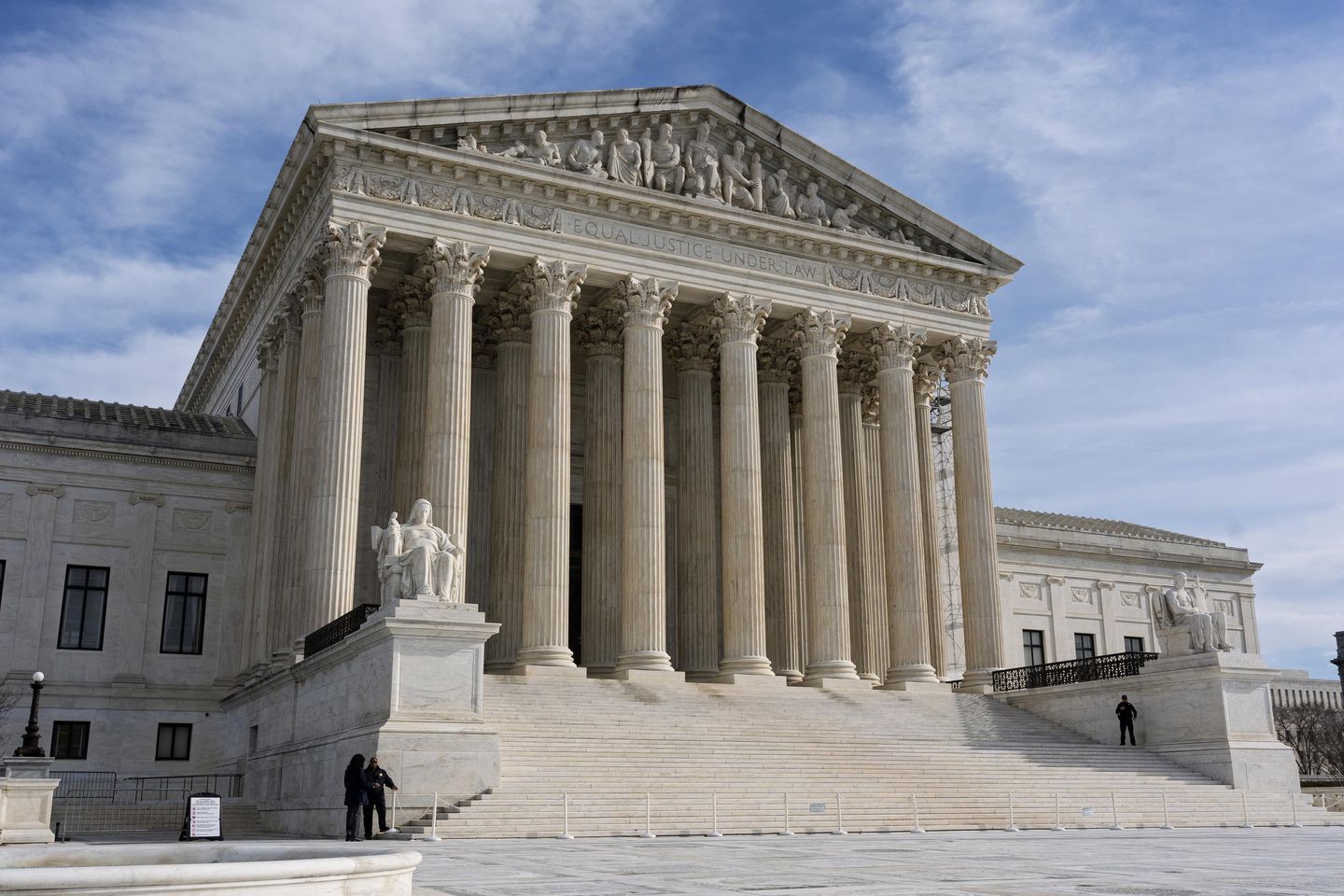
The Supreme Court heard arguments Wednesday from fuel producers who are objecting to California’s ability to set its own stringent emissions standards for automakers, saying the state’s electric vehicle drive is hurting its industry.
Diamond Alternative Energy, joined by other fuel companies, argued that the federal government, rather than a single state, should have authority over vehicle emission guidelines.
Jeffrey Wall, the lawyer representing the company, said the government is preventing fuel producers from competing in California by letting the state dictate the percentage of EVs that automakers must have in their fleets.
“I am talking about a market restriction that directly tilts or forecloses the playing field,” he told the justices. “We have a pocketbook injury.”
At issue is Section 209 of the Clean Air Act, which gives the Environmental Protection Agency authority to enact national emission standards for vehicles. However, part of the law gives a waiver to California to set its own tougher standards because it was the only state to set vehicle rules prior to 1966 and because it has unique climate, pollution problems and topography.
According to the fuel producers, California’s standards require manufacturers to sell fewer gasoline-run cars and increase the percentage of zero-emission vehicles they sell under the state’s Advanced Clean Cars regulations. By 2025, automakers are required to produce enough EVs to make up 22% of their fleets.
Additionally, the EPA’s position has flip-flopped over the years as presidential administrations have had different views about California’s waiver.
The Clean Air Act and the California waiver are under review by the Trump administration, a point Justice Samuel A. Alito Jr. raised during Wednesday’s hearing.
“By my count, the EPA has now changed its mind on that four times, I think,” Justice Alito said. “What is the probability there will not be a fifth?”
The justices are being asked to decide if the fuel producers have standing — or sufficient legal injury — to bring their challenge.
Edwin Kneedler, U.S. deputy solicitor general, said the fuel companies are merely speculating that automakers would change their production — which would benefit them — if the California requirements didn’t exist.
“You need evidence to support a conclusion that that would be true,” he told the court.
The D.C. Circuit Court of Appeals had agreed with the federal government’s position, saying the fuel companies had to show evidence that the automakers would act differently but for the California standards.
The justices seemed to side with the fuel companies in noting that the companies were at least somewhat hampered by California’s involvement in dictating emission guidelines.
“Wasn’t the goal of the California regulations to reduce the use of petitioner’s fuel?” asked Justice Clarence Thomas, a George H.W. Bush appointee.
Justice Elena Kagan, an Obama appointee, said in prior court filings the EPA and the state recognized that fuel companies would be affected.
“Both parties said … ’Yes, this is going to reduce gasoline emissions,’” she said.
Justice Brett M. Kavanaugh, a Trump appointee, meanwhile, said the EPA didn’t raise the standing issue against the fuel companies previously.
“Isn’t that a tell here?” Justice Kavanaugh said. “EPA usually raises standing questions even when there is even a hint of a question about it.”
California also joined in Wednesday’s arguments.
Joshua Klein, deputy solicitor general for California, said auto manufacturers are trending toward electric vehicles irrespective of California’s standards.
“This waiver is not making a difference on the ground now,” he said.
The case is Diamond Alternative Energy v. EPA. A decision is expected by the end of June.












